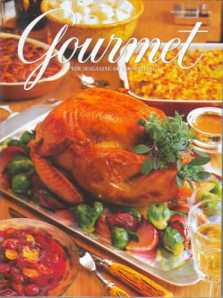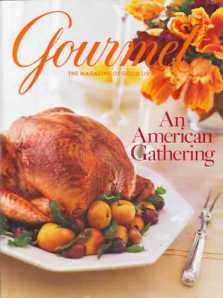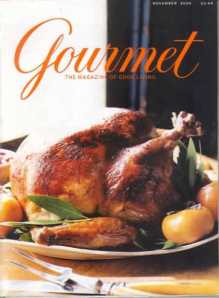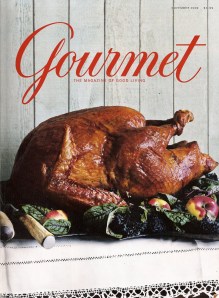This columnist’s opinion, as with a lot of the opinions about “brain drain” circulating in the newspapers and airwaves, are entirely self-serving. The proponents, none other than those who’ve emigrated and are invested in derailing any critical discussion about the entirety of immigrant experiences, are fairly consistent.
They latch on to the “search for a better life” moniker, and collapse a whole bunch of historical periods and individual decisions and experiences together to present arguments like “I wouldn’t have been somebody if I hadn’t migrated.” Or, as Moyston has: “We [referring to who exactly?] exported crude lumps of clay; these were shaped by exposure, experience into incisive, creative tools – politicians, opera singers, academics, train drivers, welders all with a sense of social justice.”
I have not heard such insulting and colonized language in a long time. That alone makes the case to dismiss anything else he has to say, just on the basis of its accuracy.
Notice from the ongoing commentary how it’s not working-class people living proud working-class lives in their working-class communities in their adopted countries who are on this “brain drain is good” wagon to glory. Indeed, Jamaican immigrants who are living hand to mouth, barely eking out a living after decades of relocating, and whose children are doing pretty much the same thing their parents were – except it’s called another name and includes more technological devices than their parents needed – don’t exist in the eyes of those who can’t see beyond their lint-free belly buttons. (If they had not migrated, that bellybutton would be full of enough dirt to compete with a yam hill!) And if one questions the tightly sewn narrative of “success is impossible in Jamaica”, then the conversation quickly devolves, always beginning from the “I” and extending outward. To wit: to say that brain drain is a problem is to say that “I” shouldn’t have had the opportunities that I did, and that my parents were supposed to stay and suffer, etc. etc. etc. etc. and that I shouldn’t have gotten a job that pays whatever, and a wife and house and land and car, etc. etc. etc. etc.
I often wonder what’s the point of talking about some of these pressing issues that all Jamaicans seem to think they are experts on? For this reason, I sometimes wonder why we bother to have schools and universities…there’s no point since everybody knows how to solve everything, right?
My more considered response:
The author is self-consciously presenting a skewed perspective to justify his own existence and that of the other types of he values. It is a profoundly conservative argument that takes absolutely no account that the reasons and mechanisms for migration have changed over time, and how successive Jamaican gov’ts have adjusted the investments they’ve made in the social infrastructure with the expectation that people will migrate at a certain rate, and even to use gov’t and taxpayer resources to *encourage* migration in order to not deal with their profound incompetence and lack of interest in correcting the growing economic inequality in the society.
They even have the unmitigated gall to have now seized on the term “remittances” to continue encouraging people to leave, by intimating that, in a way, the country will better off when certain people leave and send back money, while other types of people are invited in. And now blaming the state of the economy on “brain drain” as if they really do understand what that means, how to account for it and how their current actions are facilitating such.
Any policymaker who is so clueless as to think there won’t be unintended consequences from seeking easy answers in “remittances” or not recognising that there’s a direct relationship between focusing national resources and reorienting people’s psychologies to think entirely in terms of “foreign investment” promoting “seasonal work” while simultaneously complaining about “brain drain” needs to go back to primary school.
There they would learn that if you pour water into an already full tub, the water will spill over. So unless you know exactly how much was in the tub already, and how much you poured in, you can’t know exactly how much spilled. Unless you put the tub into a larger container, you won’t be able to catch all of what spills over. And if you do it on a hot day, you won’t capture as much of the overspill as on a colder day.
You get the analogy.
Like water, people will find their way through whatever crevice or crack there is to some other condition of living: sometimes those routes lead them to illicit activities and jail, even when they had the choice to go to college and get that fancy job.
That much overused and now trite “search for a better life” looks far different for:
*someone whose brother or sister sponsors them, and they leave their family and children behind with the intention to see if “they can make a change” in time to allow their children to finish high school
*to someone who’ve benefited from the hard work of their parents to finish high school, get a clerical job, but always wanted to do something else that they couldn’t imagine how to access, and the luck of having someone tell them or their parents that they can apply to universities anywhere in the world, and the rest is history
*from someone whose parents had a definite idea of a future for themselves and their children that lay outside of Jamaica, got enough education to make their way into a secure government or private sector job, saved and worked, migrated at the first opportunity, did whatever they could so their children could be called doctor, lawyer, accountant, etc. and never looked back except to say see, “anybody who wants it can have it”
*those whose parents have left perfectly good jobs or no jobs at all but felt that if they migrated they could do better, and whose children spend all their time around others who are always talking about migration and who thought that’s what you are supposed to do the minute that you get the chance, even if it’s in the middle of the school year, and so spend all their days counting down when they will leave, so even when their parents send them to UWI, UTech etc. they never really try hard enough to do or be anything and think that the education and the place is 2nd rate anyway, because they believe they “will travel soon”, and ‘soon’ doesn’t always happen exactly when they plan, or how they want, and so they spend however long trying to figure out how to leave, or at least to live the lifestyle that they imagine one must have if one eventually migrates…
*those who take long leave from their jobs, who claim they are going on holiday, never return until they have “straightened themselves out” and proceed to cultivate the notion that “farrin is best” when they visit, but when they’re in farrin they can’t stop saying “no wheh nuh betta dan yaad”
*those who go through every possible channel to leave because they believe and know that they can’t become anything else or more than they are if they stay, and who manage to get to farrin, sweat, stew and struggle and manage to eke out a decent living, sometimes happy, sometimes not, send their children to school, some of whom manage to do something boastworthy with themselves – from nursing aides to doctoral studies to real estate business – some of whom don’t.
There are variations on each scenario, but the basic formula doesn’t change.
The kind of human capital lost varies across time. Without actual data, there’s no way to make any claims about the positive or negative effects of “brain drain”. So far, the net effects are generally negative when it comes to the focus of policymaking and the intransigence on both gov’t and private companies in promoting merit-based access to opportunities among Jamaicans.
So, to evaluate the past and present state of the economy based on a convenient aggregation of individual choices based on nothing but impressions (selected ones at that) and which, if you just scratch the surfaces, are not always driven or directed by the same stimulus nor produce the same outcomes, is just plain mischievous. There’s enough partial, half-baked, politically motivated analysis out there already. These columnists need to contribute something of value that will inform the conversation, or stay quiet until they figure out what needs to be said.









